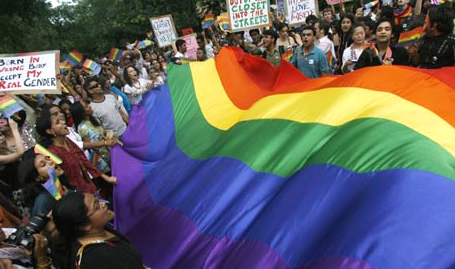The landmark decision by Delhi High Court which has declared that clause “unconstitutional” which criminalizes homosexuality has opened up a new gate of Freedom not only for India but also for this whole region. Section 377 of Indian Penal Code which criminalizes homosexuality was a dirty legacy of British Imperialism. Justice Murlidharan, has not received any “Harvard Medal of Freedom” unlike our honourable Chief Justice, but his decision is truly revolutionary. Our great chief justice despite having received “Harvard Medal of Freedom” has not written a single decision which could bring freedom to Pakistani Ahmedis, homosexuals, Dalits [Musalli of Punjab] or Balochs. All his decisions have empowered military dictators. The situation is not peculiar to Justice Iftikhar and Justice Murlidharn, the comparison goes beyond that when “secular” Muslim League created a communal state. While writing this decision Justice Murlidharn quoted Jawaherlal Nehru’s vision of equality and secularism which he put forward in “objective resolution” of 1946. One “objective resolution” was passed in Pakistan too by Muhammed Ali Jinnah’s prime minister “Nawabzada” Liaqat Ali Khan, in which state of Pakistan was for ever declared subservient to Quran and Sunnah. Our secular clowns spend all their time in proving secular credentials of Jinnah and PML but they never look at the reality. Nehru’s vision made India a constitutional democratic state no matter how much “Hindu” he was in his heart [as these thugs say] , Jinnah made a muslim nation state and his PM made it Islamic no matter if both of them drank wine . Nehru’s Objectives Resolution is quoted by a judge to bring freedom and end bigotry and Jinnah’s PM’s Objectives Resolution is quoted by Mullahs and Taliban to justify their insurgencies. This is the verdict of history. Below is the excerpt from the landmark decision. I am thankful to my dear friend Vijay Sai for sending me the decision. Today i say from the core of my heart “Joy Hind!”
Shaheryar Ali
“CONCLUSION 129. The notion of equality in the Indian Constitution flows from the ‘Objective Resolution’ moved by Pandit Jawaharlal Nehru on December 13, 1946. Nehru, in his speech, moving this Resolution wished that the House should consider the Resolution not in a spirit of narrow legal wording, but rather look at the spirit behind that Resolution.
Nehru said, ‘Words are magic things often enough, but even the magic of words sometimes cannot convey the magic of the human spirit and of a Nation’s passion…….. (The Resolution) seeks very feebly to tell the world of what we have thought or dreamt of so long, and what we now hope to achieve in the near future.”
130. If there is one constitutional tenet that can be said to be underlying theme of the Indian Constitution, it is that of ‘inclusiveness’. This Court believes that Indian Constitution reflects this value deeply ingrained in Indian society, nurtured over several generations. The inclusiveness that Indian society traditionally displayed, literally in every aspect of life, is manifest in recognising a role in society for everyone. Those perceived by the majority as “deviants’ or ‘different’ are not on that score excluded or ostracised. 131. Where society can display inclusiveness and understanding, such persons can be assured of a life of dignity and nondiscrimination. This was the ’spirit behind the Resolution’ of which Nehru spoke so passionately. In our view, Indian Constitutional law does not permit the statutory criminal law to be held captive by the popular misconceptions of who the LGBTs are. It cannot be forgotten that discrimination is antithesis of equality and that it is the recognition of equality which will foster the dignity of every individual.
132. We declare that Section 377 IPC, insofar it criminalises consensual sexual acts of adults in private, is violative of Articles 21, 14 and 15 of the Constitution. The provisions of Section 377 IPC will continue to govern non-consensual penile non-vaginal sex and penile non-vaginal sex involving minors. By ‘adult’ we mean everyone who is 18 years of age and above. A person below 18 would be presumed not to be able to consent to a sexual act. This clarification will hold till, of course, Parliament chooses to amend the law to effectuate the recommendation of the Law Commission of India in its 172nd Report which we believe removes a great deal of confusion. Secondly, we clarify that our judgment will not result in the re-opening of criminal cases involving Section 377 IPC that have already attained finality. We allow the writ petition in the above terms.”
Ah, the magic lurking in the dry legalese:
We declare that Section 377 IPC, insofar as it criminalises consensual sexual acts of adults in private, is violative of Articles 21, 14 and 15 of the Constitution.
Shining India. Joy Hind

July 4, 2009 at 2:34 pm
Long live freedom and free choice.
July 8, 2009 at 11:57 pm
Great piece.
July 10, 2009 at 4:41 pm
Thanks! Abdul good to see u back
August 9, 2009 at 11:39 am
freedom is immortal .